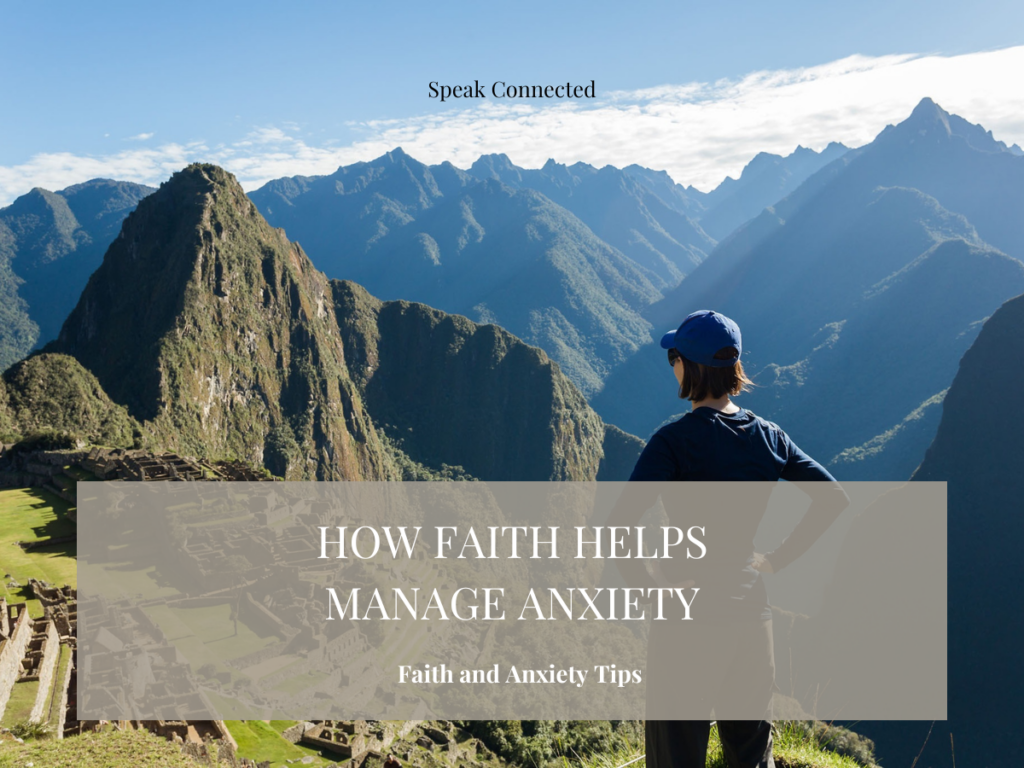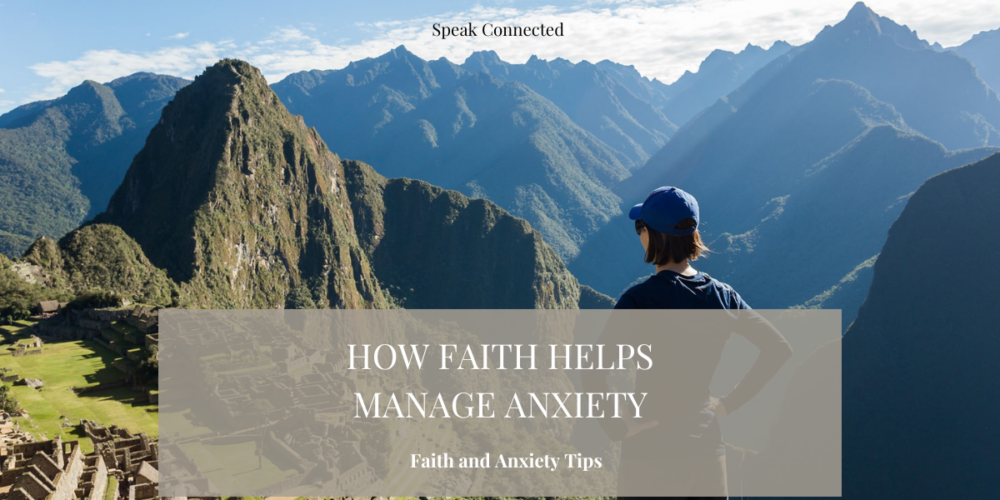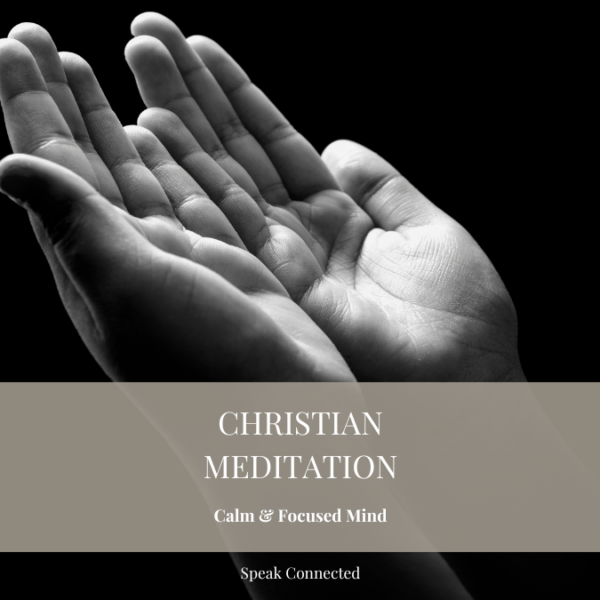
Introduction
Anxiety has become a pressing challenge in our current era, affecting millions of individuals emotionally, physically, and spiritually. Amid this growing issue, many are turning to spiritual practices as a meaningful pathway to alleviate the weight of anxiety. For those seeking faith and anxiety tips, prayer, a key element in various faith traditions, has emerged as a profoundly transformational practice that interweaves mental health care with spirituality.
In this article, we will explore how prayer not only serves as a source of comfort but also as a powerful tool to manage anxiety. Drawing from Christian spiritual perspectives, scientific research, and practical applications, we aim to provide faith and anxiety tips and actionable steps for using prayer to reduce anxiety and find enduring peace.
Understanding Anxiety from a Spiritual Perspective
Defining Anxiety and Its Manifestations
Anxiety is a natural emotional response characterized by excessive worry, fear, or unease, often accompanied by physical symptoms such as a racing heart, difficulty breathing, restlessness, or fatigue. While it is a common human experience, chronic or unmanaged anxiety can disrupt normal functioning and lead to more severe mental health challenges.
From a spiritual perspective, anxiety is often viewed not only as a mental and physical concern but also as a disruption of inner peace—a detachment from the grounding presence of faith, trust, and divine guidance.
Anxiety and the Christian Perspective
Christian teachings acknowledge the human tendency to experience fear and worry but offer solace through trust in God’s plan. Philippians 4:6–7 encourages believers to release their anxieties through prayer, stating, “Do not be anxious about anything, but in every situation, by prayer and petition, with thanksgiving, present your requests to God. And the peace of God, which transcends all understanding, will guard your hearts and your minds in Christ Jesus.”
Similarly, throughout the Bible, anxiety is often addressed as a call to lean into faith and shift reliance from self to divine support, reinforcing a sense of trust and surrender that cultivates spiritual and mental peace. The Bible provides many faith and anxiety tips to help us experience our emotions and manage them in healthy, godly ways.
Spiritual Significance of Prayer in Finding Peace
Prayer represents a direct, intentional connection between an individual and God, offering the opportunity to express fears, seek comfort, and experience reassurance. From a spiritual standpoint, prayer is a tool to re-center one’s focus away from worldly concerns and draw strength from divine guidance, fostering a sense of profound peace and assurance.
The Science Behind Prayer and Anxiety Reduction
Scientific discoveries increasingly affirm the relationship between spirituality and mental health, particularly regarding the profound effects of prayer on anxiety reduction.
The Impact of Prayer on the Brain
Studies in neuroscience reveal that prayer and meditation activate the prefrontal cortex, which governs focus, planning, and emotional regulation, while calming the amygdala, the center responsible for processing fear. Therefore, prayer reduces the physiological stress response, promoting greater mental clarity and calmness.
For example, research conducted by Harvard University highlights how consistent prayer can enhance neural pathways associated with emotional regulation, leading to lower stress and anxiety levels. Additionally, prayer fosters mindfulness, anchoring individuals in the present moment and mitigating overwhelming negative thoughts.
Prayer as a Protective Factor for Mental Health
A study featured in the Journal of Behavioral Medicine emphasized that people who engage regularly in spiritual practices, such as prayer, report greater resilience against anxiety and depressive symptoms. For many individuals, prayer acts as a psychological anchor, offering stability during life’s uncertainties.
Practical Faith & Anxiety Tips for Integrating Prayer into Daily Life
1. Start and End Your Day with Prayer
Dedicate the first and last moments of each day to stillness and reflection. Begin your mornings with a brief prayer of gratitude and intention, and conclude the day with supplication, entrusting your worries and concerns to God. This practice sets a peaceful tone for the day and encourages restful sleep at night.
2. Incorporate Breathing Exercises
Combine prayer with deep, intentional breathing exercises. As you inhale, recite a calming scripture or affirmation, such as “Be still and know that I am God” (Psalm 46:10). Exhale slowly, releasing fear and tension with each breath.
3. Use Scripture as a Focus for Prayer
Select passages that emphasize peace and assurance, like John 14:27 (“Peace I leave with you; my peace I give you”) or Isaiah 41:10 (“Do not fear, for I am with you”). Meditate on these verses, allowing their truths to resonate deeply as you pray.
4. Engage in Prayerful Meditation
Combine prayer with meditation techniques. Sit in quiet contemplation, focusing on the attributes of God—His love, faithfulness, and guidance. Reflect on these qualities to cultivate a sense of peace and trust.
5. Join a Prayer Community
There is power in collective prayer. Connect with others through a local church group or online community to share personal experiences, support one another, and engage in group prayers focused on overcoming anxiety.
6. Be Consistent
Consistency is essential to reaping the long-term benefits of prayer. Establish a dedicated prayer time and treat it as a prioritization of mental and spiritual well-being, even during busy or challenging circumstances.
Real-Life Testimonies and Case Studies for Faith and Anxiety Tips
Personal Testimonies
“I was overwhelmed by anxiety, unable to find peace no matter what I tried. Once I started praying every morning, focusing on God’s promises, I felt a shift. It didn’t happen overnight, but day by day, my fears diminished, and I was able to approach life with confidence and peace.” – Sarah, 34.
“For months, I struggled with work-related stress that kept me awake at night. It wasn’t until I joined a prayer group through my church that I found true relief. Praying with others gave me a sense of community, and I learned coping mechanisms that helped me overcome my anxiety.” – Peter, 41.
Case Study
A 2021 study by Baylor University examined individuals who integrated daily prayer into their mental health routines for three months. Results revealed a 28% decrease in self-reported anxiety levels, attributing the change to the participants’ deepened sense of connection to God and increased emotional resilience through prayer.
Biblical References on Peace and Anxiety
The Bible is filled with wisdom that provides comfort during times of distress. Below are a few key scriptures to guide prayer and reflection when facing anxiety:
- Matthew 6:34 – “Therefore do not worry about tomorrow, for tomorrow will worry about itself. Each day has enough trouble of its own.”
- Psalm 94:19 – “When anxiety was great within me, your consolation brought me joy.”
- 1 Peter 5:7 – “Cast all your anxiety on him because he cares for you.”
- Isaiah 26:3 – “You will keep in perfect peace those whose minds are steadfast because they trust in you.”
These verses emphasize the Christian call to trust God rather than fear uncertainty, fostering peace through reliance on His strength.
Finding Strength Through Prayer
Exploring prayer as a spiritual solution to anxiety offers a bridge between mental health and faith practices. Whether beginning the day with gratitude, meditating on scripture, or joining prayerful communities, prayer fosters emotional resilience, strengthens spiritual connection, and paves the path toward tranquility.
If you’re seeking to enrich your spiritual practice and find peace during life’s challenges, start incorporating regular prayer today. Share your experiences with us below, or subscribe for more insights and resources for your faith and mental well-being.
Additional Resources for Faith and Anxiety Tips
- Books
- Anxious for Nothing by Max Lucado
- The Battle Plan for Prayer by Stephen Kendrick and Alex Kendrick
- Websites
- National Alliance on Mental Illness (NAMI)
- Support Groups
- Local Prayer Groups through Churches
- Recommended Articles
- 5 Meaningful Bible Verses About the Power of Prayer
- The Power of Prayer Before Class: Focusing Minds and Calming Hearts
- 7 Tips for Prayer: How to Pray According to The Bible
- Embracing Spiritual Growth: Tips for Deepening Your Connection with God
- Maximize Your Prayer Time: Christian Motivation and Scripture






